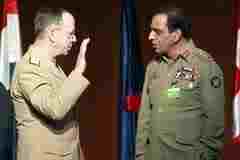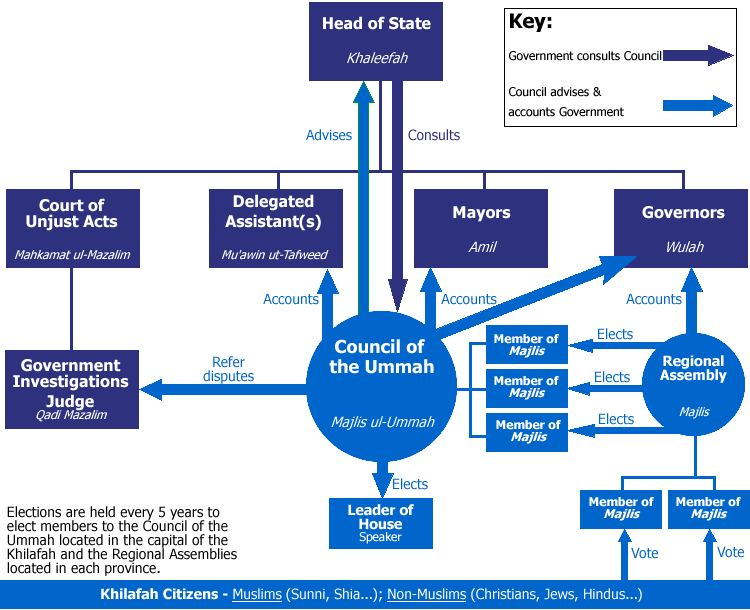Kayani’s double game

Kayani’s double game
Musab Umair
In the days before the All Parties Conference of 30 September 2011 and its declaration in Pakistan, the Pakistani media and political medium seemed to have been engulfed with discussions Pak-US relationship melt down. There has been a war of words between Pakistan and America, after the outgoing Chairman of the US Joint Chiefs of Staff, Admiral Mike Mullen, said that the Haqqani group was a “veritable arm” of the Pakistani premier intelligence agency, ISI, blaming it for a 19 hour siege on the US Embassy in Kabul, a truck-bombing on a NATO base in Afghanistan that wounded 77 Americans. There was a response from Pakistan’s rulers that has been uncharacteristically harsh. A question arises, is this an attempt to lift the lost credibility of the Chief of Army Staff, Kiyani, that he is playing a double game against America?
In answer to this question it is important to address the background of the war of words. There is unprecedented anger against America within the people and armed forces of Pakistan. This surged after the Raymond Davis issue, in which an American assassin killed Muslims in Pakistan and was then released back to America, and the American invasion of Pakistani soil to launch an attack in the military town of Abbotabad supposedly to kill Ousama Bin Laden.
This anger is a concern for America because this effects the implementation of its policies in the country, particularly regarding settling some semblance of permanent occupation of the neighbouring Afghanistan. America depends on its loyal agent General Kiyani using the Pakistan’s armed forces against the resistance that emanates from the tribal areas on both sides of the Pakistan-Afghanistan borders. The matter is particularly sensitive as the US President readies himself for a bid to be elected for a second term and needs to present some success to his foreign policy, at a time when the people are angered at the high expenditure abroad when the domestic economy has collapsed.
General Kayani, has been doing his best to address this matter and quell this anger, with his handful of henchmen in the military and political leadership. At first there was a campaign in the media and political circles, organized through government agencies, to scare the armed forces and the masses that America is too powerful. This is similar to the attempt of the military agent before Kiyani. America worked with Kiyani’s predecessor and close friend, Pervez Musharraf, closely and scared the Muslims into accepting the American invasion of Afghanistan, claiming that Musharraf is trying to save the Fortress of Islam as part of his Pakistan First policy.
However, America failed by using this style of creating fear. The Muslims, those within the armed forces and the masses, realise that America is harming and weakening Pakistan through its war. The war is widely seen as a crusade and a war of Fitna in which Muslims are killing Muslims. They see that America has divided the Pakistan armed forces on three fronts, the tribal areas, the border with India and the internal chaos and insecurity. In fact, these perceptions rose, despite the campaign from American agents. And above all others, American institutions and surveys themselves noted and commented upon the anti-American sentiments within the armed forces and masses.
So, America was forced to resort to another style to allow Kayani room to manoeuvre. They seek to portray Kayani is playing a double game with America and is trying to keep a distance with them. It is no surprise for America to adopt this style. America is pragmatic, and we can mention here the anti-American rhetoric of Gamal Abdun-Nasir who spoke against American constantly, but fulfilled its agenda side by side to the last article. Moreover, in Pakistan, America used this style with Musharraf, even though it was used in restricted circles, limited to the armed forces circles. However, now, America has been forced by the weight of public opinion, which is effecting the armed forces’ more than ever before, to present Kayani’s pretend stance to the entire society.
Accordingly, although practically on the ground, we find that Kayani has been keenly pursuing the American interests, he became suddenly and uncharacteristically harsh against America.
Prior to the war of words between America and Pakistan, Kiyani and Mullen met. On 18 September 2011, the US Joint Chiefs of Staff Chairman Mike Mullen’s spokesman Captain John Kirby announced that Mullen met his close confidant Kiyani in Spain to discuss ways to shore up strained ties after a US raid that killed al Qaeda leader Osama bin Laden and a spike in violence in Afghanistan, for more than two hours and up to four hours, of talks on the sidelines of a NATO conference in Seville. He added, “They agreed that the relationship between our two countries remained vital to the region and that both sides had taken positive steps to improve that relationship over the past few months … They also discussed the state of military-to-military cooperation and pledged to continue to find ways to make it better.” As an important example of such co-operation, Al-Jazeera reported how Kayani was assisting the American agent in Afghanistan in negotiations to settle matters. On 28 June 2010, Al- Jazeera reported, “Hamid Karzai, the president of Afghanistan, has met Sirajuddin Haqqani, leader of a major anti-government faction, in face-to-face talks, Al Jazeera has learned. Haqqani, whose network is believed to be based across the border, is reported to have been accompanied to the meeting earlier in the week by Pakistan’s army chief and the head of its intelligence services, according to Al Jazeera’s sources.” These talks laid the grounds for a successive series of measures to allow America to strike deals with what it calls the moderate Taliban
And this is the background to the war of words. So, came the comments of Mullen on 22 September when he told the US Senate Armed Services Committee in a widely publicised statement, “The Haqqani network, for one, acts as a veritable arm of Pakistan’s Inter-Services Intelligence agency.” And the very next day, a military statement said quoted Kayani as saying, “this is especially disturbing in view of a rather constructive meeting with Admiral Mullen in Spain.” Kayani added that “the blame game” should give way “to a constructive and meaningful engagement for a stable and peaceful Afghanistan, an objective to which Pakistan is fully committed,” the statement added. This statement was accompanied by rhetoric by Kayani key henchmen, the Interior Minister, the Foreign Minister and the Prime Minister. And this war of words was to help Kayani to portray himself as someone who is working behind the scenes to undermine American influence in Afghanistan, so that Pakistan may benefit of it.
But regardless of this war of words, Kiyani continues to support America presence in the region, practically and continuously. Even he could deliver America a crushing defeat in its war against Islam, its Ummah and its state. Within days America’s actual strength would become obvious before the Muslim armed forces, whose Muslim soldiers cherish martyrdom as much as the cowardly kuffar cling to this life, if the he withdrew its military support to America’s crusade, closed America’s bases including those used for drone attacks, expelled American military staff and cut Pakistan’s supply line to America’s forces in Afghanistan. And we notice that none of these matters were addressed in the All-Parties Conference declaration of 30 September 2011, to the point that America itself was not mentioned!
So, much for the war of words by Kiyani. What is required now is that the armed forces of Pakistan extend the Nusssrah for the establishment of the Khilafah, which will work practically and immediately to end the occupation and dominance of the Kuffar within the Muslim Lands, by gathering the Ummah and its immense resources against the Kafir colonialists.





